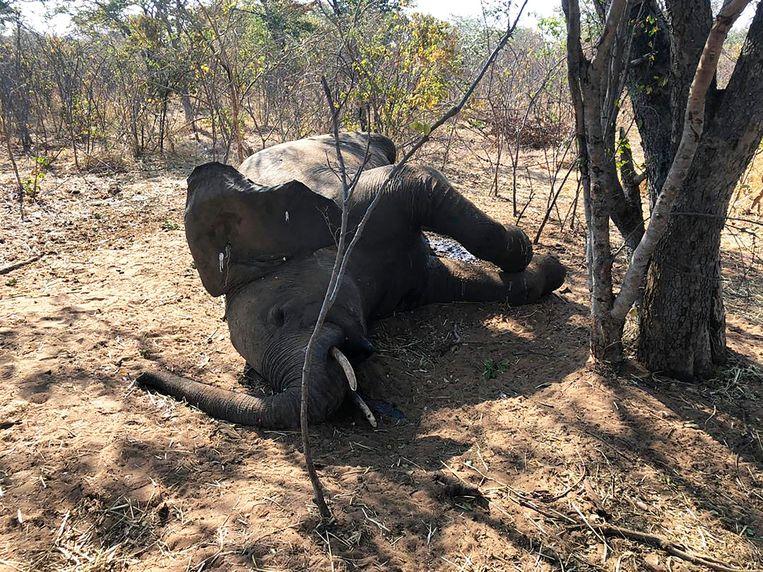Scientists discover the cause of the sudden death of 34 elephants in Zimbabwe

Researchers have identified the cause of death for more than 30 elephants who died suddenly in Zimbabwe last month. A bacterial infection turns out to be the culprit.
The National Wildlife Park announced that the 34 pachyderms died of some type of blood poisoning. The disease is also known as pasteurellosis and mainly occurs in (sub) tropical countries. Other mammals, such as buffaloes and zebras, can also become infected with this.
The first dead elephants were discovered near the Hwange Reserve in late August. Yesterday, twelve more dead animals were found, bringing the total number of corpses to 34. The cause of death was unclear so far, but research in a lab led the scientists to the trace of the bacterial infection.

A spokesperson for the reserve said earlier that their deaths could probably be linked to a bacterium. It was suspected that it developed after the elephants ate inedible plants. The latter is the result of an overpopulation of elephants in the region. As a result, the animals’ favorite vegetation has disappeared, and they really eat everything, including poisonous plants.
Zimbabwe has more than 84,000 elephants, while there is actually only a capacity of 45,000 to 50,000 animals. The Hwange reserve is home to between 45,000 and 53,000 animals, where there is only room for about 15,000, according to the spokesman.
In neighboring Botswana, 330 elephants have recently died. This was due to a poisonous micro-organism.












